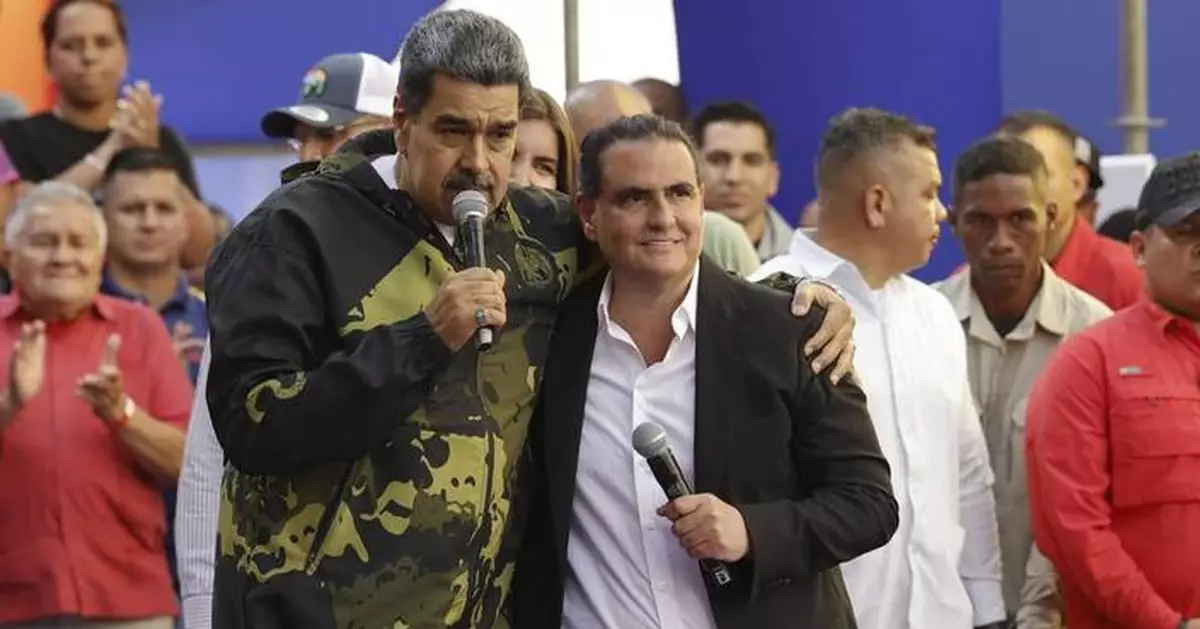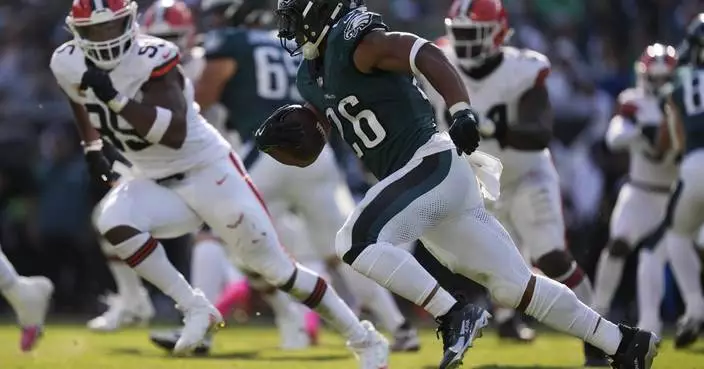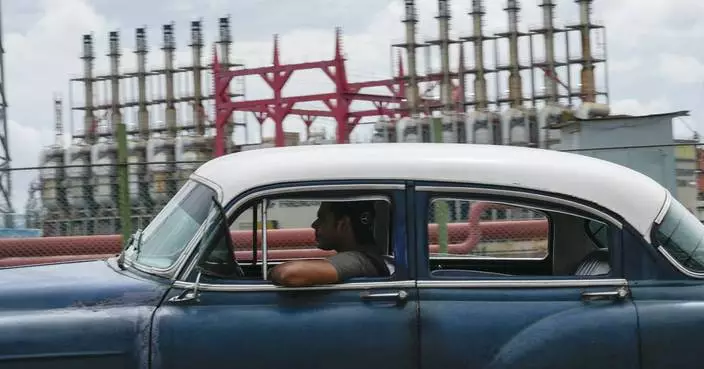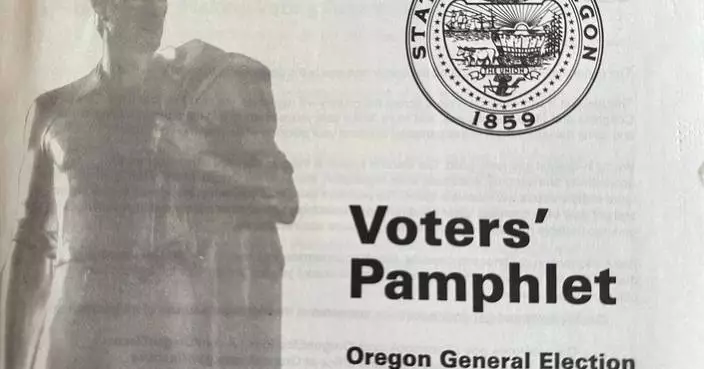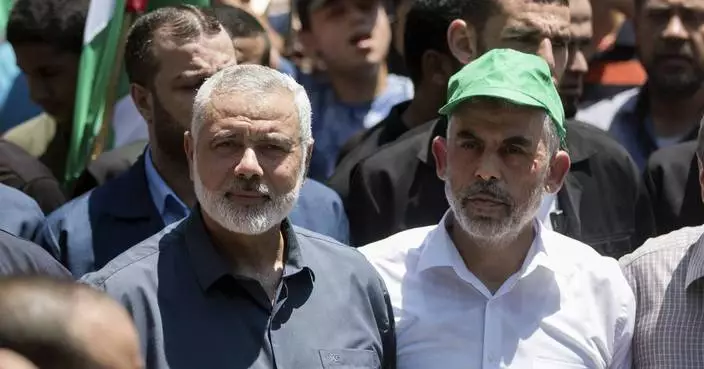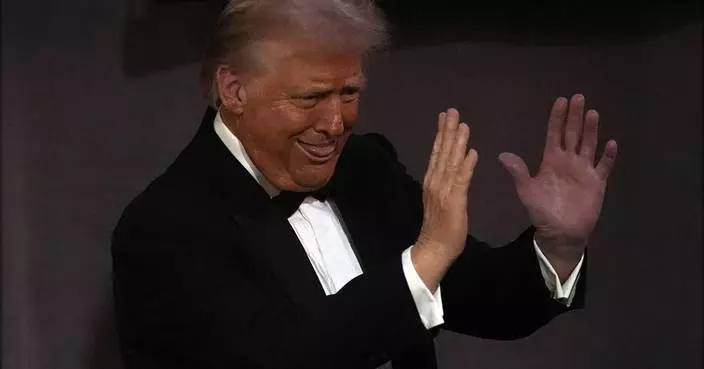CARACAS, Venezuela (AP) — Venezuelan President Nicolás Maduro on Friday appointed to his Cabinet a close ally who was pardoned by U.S. President Joe Biden last year as part of a prisoner swap and following assurances that Venezuela would hold a fair presidential election in 2024.
Maduro named Alex Saab minister of industry and national production and tasked him with promoting “the development of the entire industrial system of Venezuela within the framework” of what he called a “new economic model.” Maduro made the announcement on the messaging app Telegram.
Saab returned to Venezuela a free man in December after being in custody since 2020, when authorities in Cape Verde arrested him on a U.S. warrant for money laundering charges. U.S. prosecutors long regarded him as a bagman for Maduro.
The president secured his release and clemency in a deal conducted with the Biden administration. In exchange for Saab, Maduro released 10 Americans and a fugitive defense contractor known as “Fat Leonard” who was wanted for his alleged role at the center of a massive Pentagon bribery scandal.
The largest release of American prisoners in Venezuela’s history took place weeks after the White House granted the South American country a broad reprieve from economic sanctions, following a commitment by Maduro to work with the political opposition toward free and fair conditions for the 2024 presidential election.
The U.S. ended the sanctions relief earlier this year after hopes for a democratic opening faded.
Last month, it responded to Venezuela’s highly disputed July presidential election by sanctioning 16 of Maduro’s allies, accusing them of obstructing the vote and carrying out human rights abuses.
Saab was arrested in 2020 during a fuel stop en route to Iran to negotiate oil deals on behalf of Maduro’s government. The U.S. charges were conspiracy to commit money laundering tied to a bribery scheme that allegedly siphoned off $350 million through state contracts to build affordable housing.
Saab was also sanctioned for allegedly running a scheme that stole hundreds of millions in dollars from food-import contracts at a time of widespread hunger mainly due to shortages in the South American country. After his arrest, Maduro’s government said Saab was a special envoy on a humanitarian mission and was entitled to diplomatic immunity from criminal prosecution under international law.
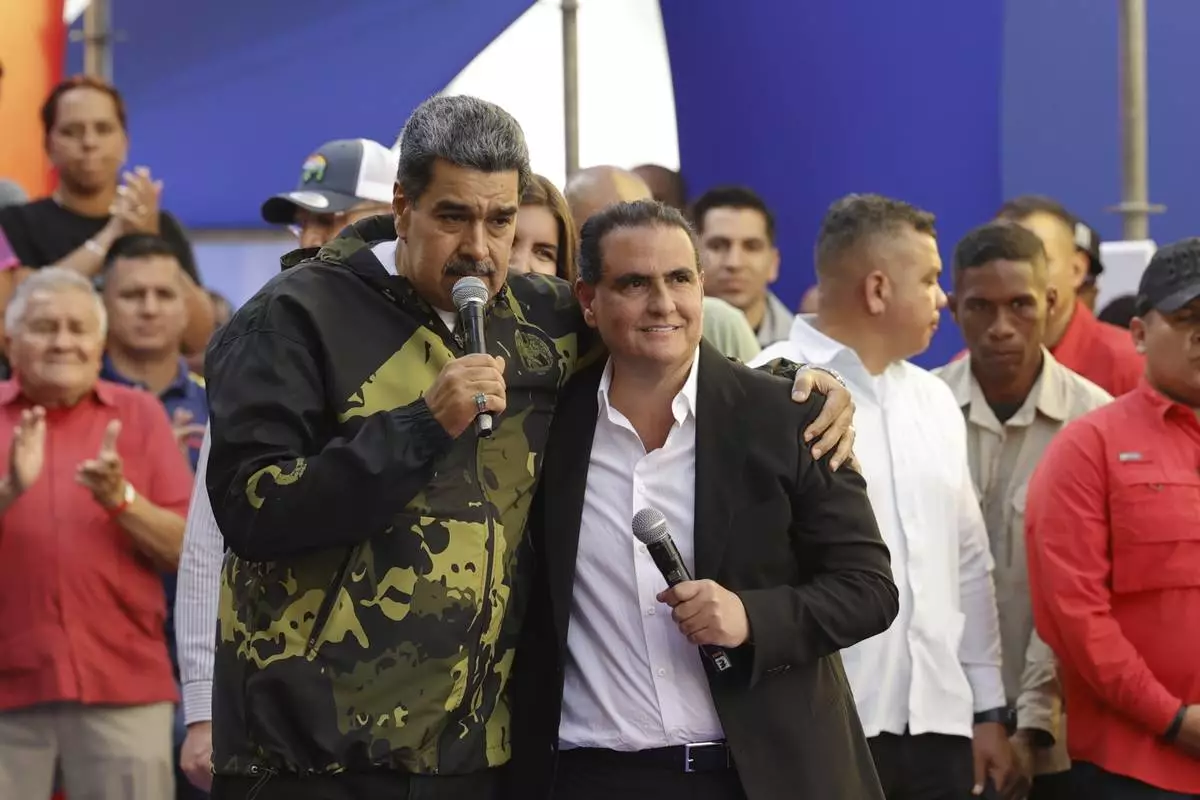
FILE - Venezuela's President Nicolas Maduro and Alex Saab stand in an embrace during an event marking the anniversary of the 1958 coup that overthrew dictator Marcos Perez Jimenez, in Caracas, Venezuela, Jan. 23, 2024. (AP Photo/Jesus Vargas, File)
MEXICO CITY (AP) — Assailants fired a dozen gunshots at a building housing the newspaper El Debate in the embattled northern Mexico state of Sinaloa, the media outlet said Friday.
The newspaper is based in the state capital, Culiacan, where rival factions of the Sinaloa Cartel have been staging bloody battles.
The newspaper said it found at least four bullet impacts on the building’s walls, and more gunfire hit newspaper vehicles parked in front of the offices late Thursday. The paper said that no one was injured.
The Mexican Media Alliance, a press freedom group, called it “a direct attack against press freedom and right of the public to be informed.”
El Debate said that the assailants arrived in two vehicles and stopped briefly in front of the building. One gunman got out and opened fire with a rifle, before they sped off.
Threats against journalists and their sources have increased exponentially since the latest round of factional fighting broke out after two Sinaloa drug capos — one from each faction — flew to the United States and were arrested there.
Drug lords Ismael “El Mayo” Zambada and Joaquín Guzmán López were apprehended in the United States after flying there in a small plane on July 25.
Zambada later claimed he was kidnapped and forced aboard the plane by Guzmán López, causing a violent battle between Zambada’s faction and the “Chapitos” group led by the sons of imprisoned drug lord Joaquin “El Chapo” Guzmán.
Journalists have reported being stopped by gunmen on roadways outside Culiacan and told they couldn't cover the continuing gunbattles happening on the outskirts of the city on an almost daily basis.
In 2017, Javier Valdez — an award-winning reporter for the weekly publication Rio Doce who specialized in covering drug trafficking and organized crime — was slain in Sinaloa's state capital.
Ismael Bojórquez, Rio Doce's director, said that “as in other wars, we journalists are the ones who get caught in the crossfire.”
There is little doubt that the warring cartel factions in Sinaloa want to intimidate the media into not reporting on their battles, and that has forced local residents to turn largely to social media for reports on when it might be safe to go out, and where the danger is.
Those social media platforms were full on Friday of videos of burning vehicles, bodies and cartel convoys speeding through towns.
As usual, there was no confirmation of that from state authorities, who have consistently tried to downplay the violence.
On Thursday, hours before the attack on the newspaper, Sinaloa Gov. Ruben Rocha said “there is nothing to worry about” and “everything is under control.”
But the truth leaks out around the edges: Sinaloa State University told students that it was canceling in-person classes Friday because of “the acts of violence in and around the Sinaloa state capital.”
Those online videos sometimes depict scenes that could reasonably be compared to a war: Two weeks ago in a town north of Culiacan, a passing driver filmed a military helicopter hovering over four gunmen in helmets and tactical vests just yards from a highway. The gunmen had crashed their truck into a telephone pole, but were shooting back at the chopper.
However, the online rumor mill is sometimes unreliable.
The Sinaloa Red Cross was forced to issue a statement late Thursday denying reports that two paramedics had been kidnapped along with their ambulance in an outlying town where fighting has been especially fierce.
But even the Red Cross was spooked. It was careful to say that “it is important to stress that the Mexican Red Cross is not taking any side in the conflict.”
State prosecutors were largely left hamstrung after the chief state prosecutor resigned after allegedly submitting false information about the July 25 killing of an opponent of Gov. Rocha.
And the entire municipal force in Culiacan has been temporarily disarmed by soldiers to check their guns, something that’s been done in the past when the army suspects that police officers are working for drug cartels.
President Claudia Sheinbaum limited her response to the shots fired at the newspaper to a few words. “First, obviously, to condemn these acts, and investigations are being carried out," Sheinbaum said.
The state is governed by her Morena party, and she has strongly backed Rocha.
Associated Press writer María Verza contributed to this report.
Follow AP’s coverage of Latin America and the Caribbean at https://apnews.com/hub/latin-america
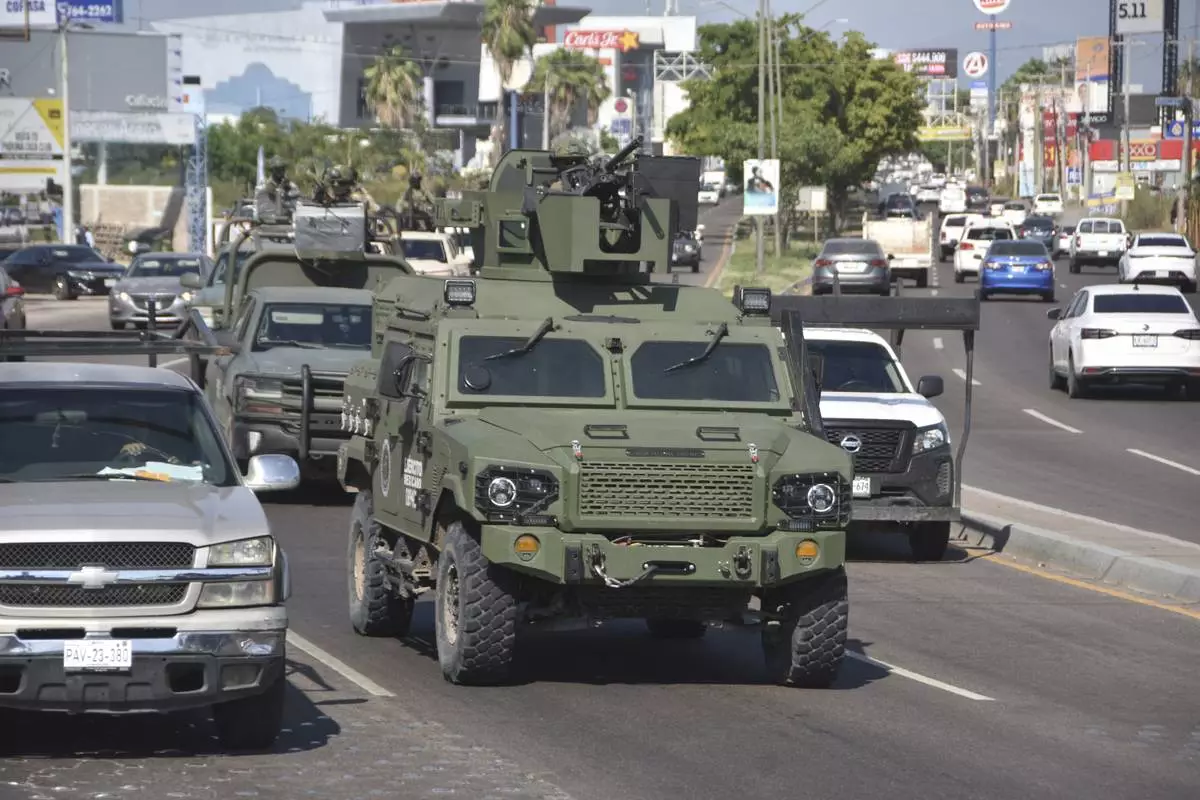
National Guards patrol the streets in Culiacan, Sinaloa state, Mexico, Monday, Oct. 14, 2024. (AP Photo)



